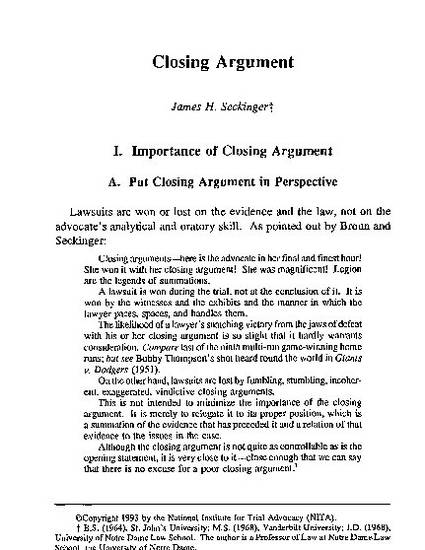
To put closing argument in perspective, lawsuits are won or lost on the evidence and the law, not on the advocate's analytical and oratory skill. As pointed out by Broun and Seckinger: “This is not intended to minimize the importance of the closing argument. It is merely to relegate it to its proper position, which is a summation of the evidence that has preceded it and a relation of that evidence to the issues in the case.”
An effective closing is an argument, not a summation. An effective closing argument should attack the serious problems in a case and put them in the most favorable light for the judge or jury. Merely reviewing the evidence does not attack, analyze, or solve the real issues that must be resolved by the fact-finder.
Thus, on final argument we recognize that the fact-finder (judge or jury) has already heard and digested the evidence, has evaluated the witnesses, and has probably reached a decision or is strongly leaning towards one. The advocate must recognize this reality, face the problems in the case, and use the argument to give the fact-finder comfort in an appropriate judgment. To successfully discharge this role as facilitator for the fact-finder, the advocate must see the case from the fact-finder's perspective; only then can the advocate effectively persuade.
Available at: http://works.bepress.com/james_seckinger/2/

Reprinted with permission of the American Journal of Trial Advocacy.